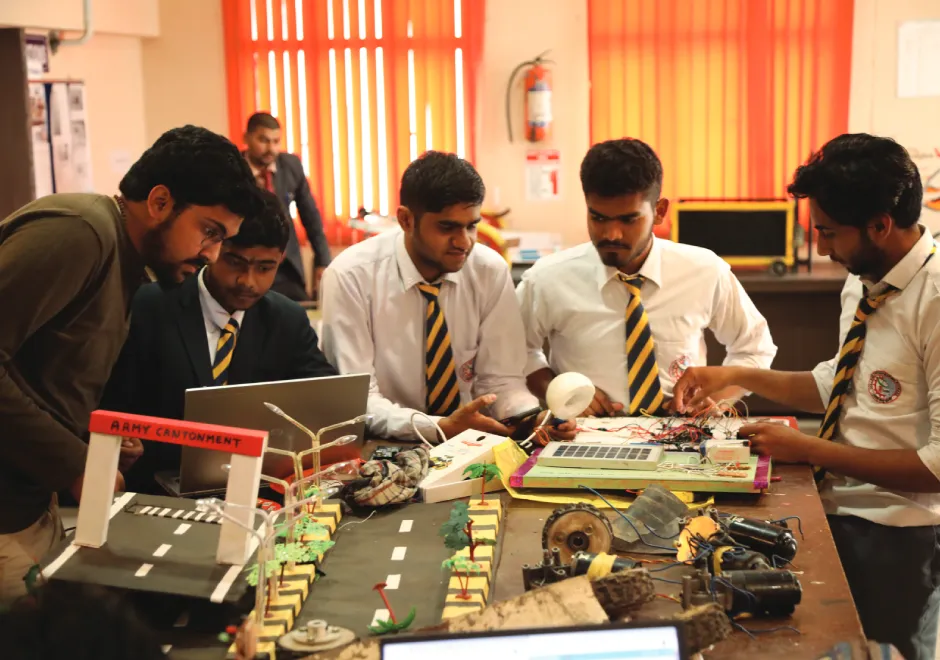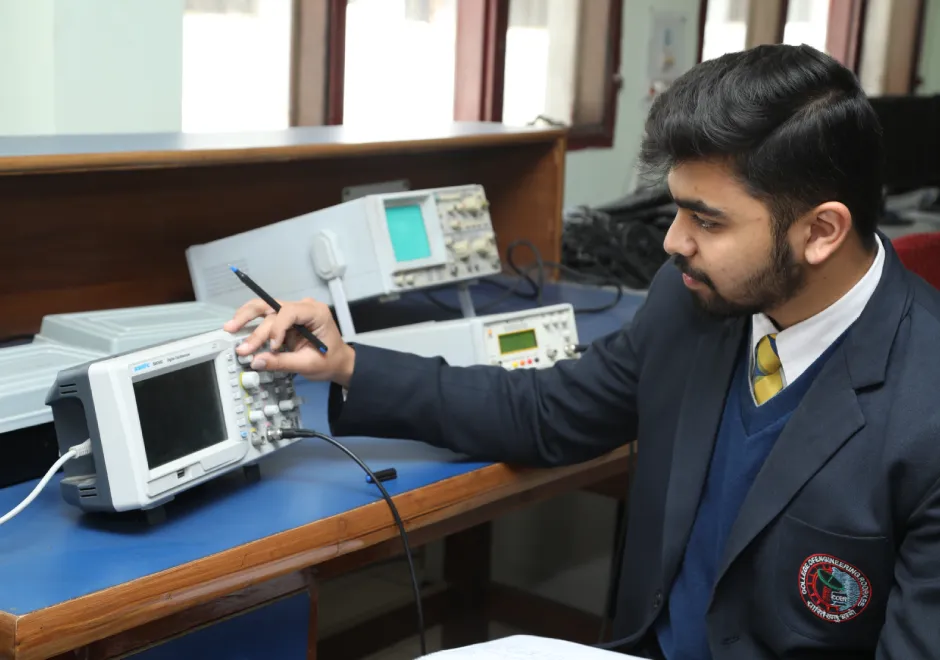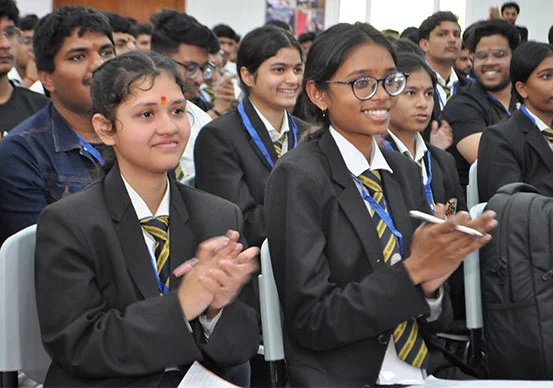
Master of Mechanical Engineering
Department of Mechanical Engineering
Duration
2 Years
Eligibility Criteria
Passed Bachelor’s Degree or equivalent in the relevant field. Obtained at least 50% marks (45% marks in case of candidates belonging to reserved category) in the qualifying examination.

The Department of Mechanical Engineering prioritizes innovation and excellence in mechanical sciences, offering a balanced education integrating theory with practical experience.
Our renowned faculty, cutting-edge laboratories, and research commitment empower students to tackle real-world challenges and lead technological advancements, fostering creativity and engineering prowess.
The Mechanical Engineering Department offers an M.Tech. in Energy Engineering, focusing on advanced energy systems, sustainable technologies, and efficient energy use. The program combines theoretical knowledge with practical applications, preparing graduates for leadership roles in industry, academia, and research and to innovate in renewable energy, energy management, and policy development, addressing global energy challenges and driving sustainable solutions.
Apply NowAdmissions 2026
Find your path to Success
Career Path
- Energy Consultant
- Energy Systems Engineer
- Energy Manager
- Power Plant Engineer
- Renewable Energy Specialist
- Energy Efficiency Specialist
- Energy Modeling Engineer
- Energy Regulatory Analyst
- Energy Management Consultant
- Professor/Assistant Professor in Energy Engineering
- Research Scientist in Energy Systems

Program Outcomes POs
-
PO1
Problem analysis: Identify, formulate, review research literature, and analyze complex engineering problems reaching substantiated conclusions using advanced understanding of mathematics and engineering.
-
PO2
Design/development/execution of solutions: Design sustainable solutions for complex engineering problems and design system components or processes that meet the specified needs with appropriate consideration for the public safety, and the cultural, societal, legal and environmental considerations.
-
PO3
Conduct investigations of complex problems: Use research-based knowledge and research methods including design of experiments, analysis and interpretation of data, and synthesis of the information to provide valid conclusions.
-
PO4
Modern tool usage: Create, select, and apply appropriate techniques, resources, and modern engineering and IT tools including prediction and modelling to complex engineering activities with an understanding of the limitations.
-
PO5
Ethics: Apply ethical principles and commit to professional ethics and responsibilities and norms of the engineering practice.
-
PO6
Communication: Communicate effectively on complex engineering activities with the engineering community and with society at large, such as, being able to comprehend and write effective reports and design documentation, make effective presentations, and give and receive clear instructions.
-
PO7
Project management and finance: Demonstrate knowledge and understanding of the engineering and management principles and apply these to one’s own work effectively, as a member and leader in a multidisciplinary and/or diverse team, to manage projects and in multidisciplinary environments.
-
PO8
Life-long learning: Recognize the need for and have the preparation and ability to engage in independent and life-long learning in the broadest context of technological change.
-
PO9
Leadership in research and practice: Use a combination of technical, managerial and soft skills to play the leadership role in research and practice.
-
PO10
Engineer and Society: Apply reasoning informed by the appropriate knowledge to asses societal, safety, legal issues and the consequent responsibilities relevant to engineering practice.
Program Specific Outcome PSOs
-
PSO1
The students will be able to apply knowledge and skill of various approaches in mechanical engineering technology such as manufacturing, renewable energy, simulation, and modeling for solving complex engineering problems.
-
PSO2
The students will be able to use research-based knowledge and research methods including design of experiments, analysis and interpretation of data and IT tools.
-
PSO3
The students will be able to automate a mechanical system or a process to meet desired needs within realistic parametric constraints.
-
PSO4
The students will be able to handle research problems related to mechanical engineering and write dissertations.
Program Educational Objectives PEOS
-
PEO1
To enhance the foundation and the knowledge-base of students built upon undergraduate education.
-
PEO2
To empower them with tools of advanced research and encourage them to create new findings and compile them in a dissertation. Encourage them to publish research papers in peer reviewed journals and conferences.
-
PEO3
Encourage them to participate in teaching as Teaching Assistants in laboratories and tutorials of undergraduate students.
-
PEO4
Prepare them for research and development in industries or pursuing higher education leading to PhD degree.









